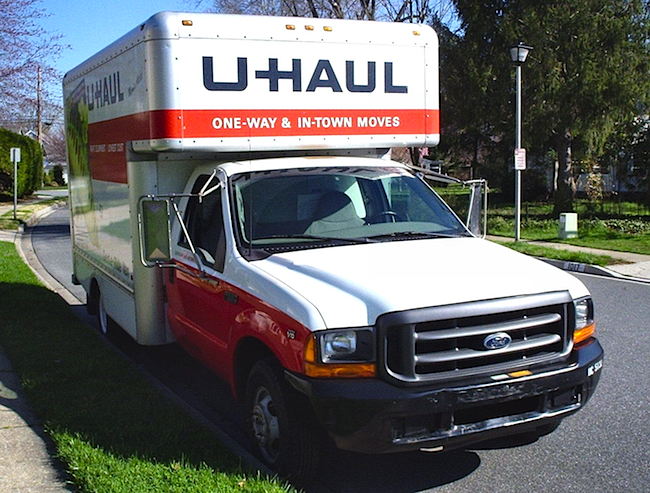
By Joe Sinagra | The Save Jersey Blog
 Governor Christie is absolutely on track in his questioning of the Realty Transfer Fee (RTF), Save Jerseyans, and if anything, if he is able to successfully eliminate this insidious tax placed on property owners, then he should also make sure it cannot revert back to its previous status once he leaves office.
Governor Christie is absolutely on track in his questioning of the Realty Transfer Fee (RTF), Save Jerseyans, and if anything, if he is able to successfully eliminate this insidious tax placed on property owners, then he should also make sure it cannot revert back to its previous status once he leaves office.
When I was running for office, another one of my peeves was the Realty Transfer Fee (RTF), pursued aggressively under Jim McGreevey and continued by Jon Corzine as an additional source of revenue. Click here to play with an RTF calculator if you’re a visual learner.
This form of taxation acts as an insidious hidden tax to homeowners New Jersey…
Many of you who count on the profit of your home to move into another home or out of state are hit with this regressive tax, also known as New Jersey’s “exit tax.” The homeowner is penalized on all their years of hard work and investment that was put into that home, money taken from the equity that was built into the sale of that home.
You as a homeowner have to pay a tax for the privilege of selling your home.
Also, on a foreclosure, a realty transfer fee must be paid on the remaining balance of the mortgage by the purchaser. The home sales tax due on a home that sells for $356,700 is $2,800; a $600,000 home would have to pay $5,185.
In 2009, the New Jersey State Legislature considered further increases to the home sales tax by permitting individual municipalities to establish their own fees in addition to those charged by the state. With the extra tax, the home sales tax bill would increase 13 percent. Many who sell their home are not informed of this tax and are unpleasantly surprised when they’re hit with the additional fees taken from the profit at the time of closing.
Going back to 2003, this tax has increased over 80% and, with the added municipal Home Sales Tax, it’s risen 103% since 2003.
The higher Realty transfer fee increase imposed in 2004 brought about an 81% increase, with the state general fund receiving 57% of the total realty transfer fee, 19% for the state’s Extraordinary Aid Account (EEA), 18% to the Neighborhood PNRF, 18% to the counties for general use, and 7% for the counties Public Health Priority Fund, with a portion dedicated to affordable housing. None of which, by the way, are directly related for the recording of real-estate transactions.
The 1968 fee was initially revenue collected to cover the costs of recording real estate transactions. Having risen four times since then, increasing substantially each time, it is now used to fund general state expenditures, neighborhood preservation, public health, and shore protection.
If a state government keeps all of what it receives from the realty transfer tax, and municipalities now able to charge a tax to make up for what they won’t be getting back from the state, would this be considered double taxation?
We’re talking about a huge sum of revenue flowing to the state. It begs the question whether anyone was keeping tabs on how it was spent? Or were the funds escalating year after year without any consideration to the seemingly endless flow of tax revenue? Or because of it?
Is this stealth tax being used as another alternative towards balancing the budget?
What we do know: this is one more tax burden that needs to be brought under control, and the monies collected must be accounted for by its recipients. Does anyone question where all that money from Realty Transfer fees goes? I doubt it.
The RTF was supposed to help support the recording of real-estate transactions as well as assist in keeping books, records, maps and such up to date. How much money does it take in the digital age to record real-estate transactions? Costs should have gone down.
No one ever seems to learn from the past’s mistakes. As if the Realty Transfer Tax wasn’t already high enough, the Corzine administration moved to increase this tax by $62 million on the state level and another $22 million on the county level.
These figures are from 2009, but you can see the intent without updated numbers. The state and the municipality receive more and more from the sale of the home just through normal growth and development. The population of New Jersey in 1960 was 6,066,782 — the RTF began in 1968. The population of New Jersey in 1970 was 7,171,112, an 18 percent increase. The population of New Jersey in 2008 was 8,698,879, a 21 percent increase over 1970 and a 43 percent increase over 1960. The sale of more homes has produced, as I’ve said, an increasing revenue stream.
Even if you live out of state and own a home in New Jersey, you are still subject to a 2 percent fee. How about people who live out of state and inherit a home in New Jersey?
The “Realty Transfer Tax” has increased over 500 percent since 1998. From 2002 through 2008 alone, Democrats imposed four increases in realty transfer tax.
It’s another example of government collecting money for a specific purpose and then deciding to divert the money to other areas.
Those who are supposed to represent us chose to create more financial hardships for those who are trying to stay afloat instead of making the tough choices to create a state of affordability for our families and business.
Governor Christie summed it up at Tuesday’s Franklin Township town hall:
“A realty transfer fee? From my perspective, it makes no sense. It’s awful. It should be done away with.”
The Governor said he would abolish realty transfer fees in New Jersey “if state lawmakers sent him such a bill.”
But why wait for lawmakers to send him a bill? Republicans should pitch a bill tomorrow and every voice should lend its power in support, much as the GOP is trying to do concerning the arb cap’s restoration.



There are quite a lot of taxes that Gov. Christie could abolish, or propose to abolish, but doesn’t. Could it be that he needs the “balanced state budget” to pound on by 2016 primaries?
This has been a sham ever since it came into existence.